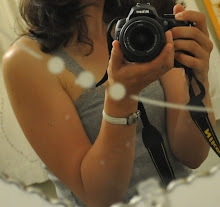Of Winds and Antelopes
"In the silence, the flag flapping, the rope hitting the mast, were more mournful than any music" (Harry Mulisch, The Assault).
(For Marijana)
The saddest sound I ever heard was the wind in a bottle.
It happened one muffled afternoon full of restless clouds,
While we stood, two figures pinned down by the casual sky,
On top of the hill, turning north south east and west
Among the freshly dug graves, glittering in the pale June sun,
Above the city.
We carried gallons of water in plastic Pepsi bottles
From the far fountain (the one in our sector had run dry)To keep the flowers fresh, turning the earth around our mound to mud.
Then we settled under the willow-tree on her left,
And looked down the hill to the lower levels of the site
Where a woman in black swept around her mound with a small broom.
Beyond, bulldozers opened new lots, pushing the edges,
And beyond them, purple hills ran down to the river,
Rolling now then and forever, slow and unsurprised.
And it was then that the north wind which came with the river
Slipped into our plastic bottles and started to sing low,
So low that it seemed to be sinking underground,
A long, low sound sadder than anything said or unsaid.
I looked to where we had lit the candles behind her cross
(It's never easy to keep them burning on top of that hill)
And saw a small wonder: the yellow wax melting
Into an antelope running quickly, faster than the wind,
Lighter than the beginning or the end of light.
Lešće, Beograd
(For Marijana)
The saddest sound I ever heard was the wind in a bottle.
It happened one muffled afternoon full of restless clouds,
While we stood, two figures pinned down by the casual sky,
On top of the hill, turning north south east and west
Among the freshly dug graves, glittering in the pale June sun,
Above the city.
We carried gallons of water in plastic Pepsi bottles
From the far fountain (the one in our sector had run dry)To keep the flowers fresh, turning the earth around our mound to mud.
Then we settled under the willow-tree on her left,
And looked down the hill to the lower levels of the site
Where a woman in black swept around her mound with a small broom.
Beyond, bulldozers opened new lots, pushing the edges,
And beyond them, purple hills ran down to the river,
Rolling now then and forever, slow and unsurprised.
And it was then that the north wind which came with the river
Slipped into our plastic bottles and started to sing low,
So low that it seemed to be sinking underground,
A long, low sound sadder than anything said or unsaid.
I looked to where we had lit the candles behind her cross
(It's never easy to keep them burning on top of that hill)
And saw a small wonder: the yellow wax melting
Into an antelope running quickly, faster than the wind,
Lighter than the beginning or the end of light.
Lešće, Beograd



